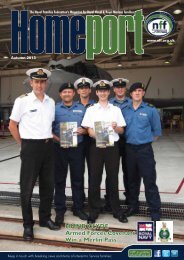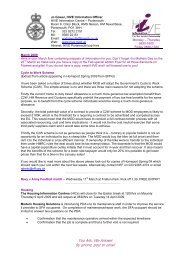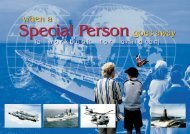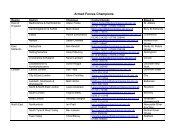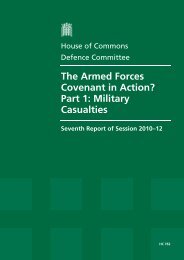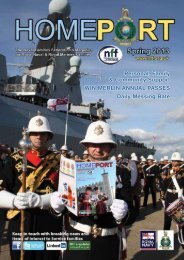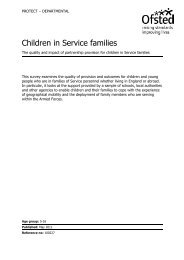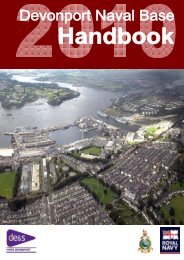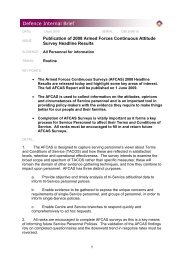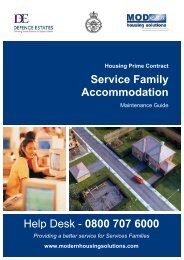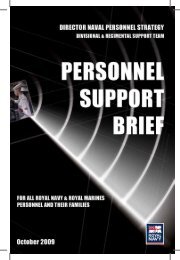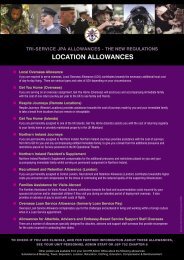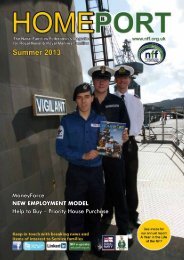PERSONNEL SUPPORT BRIEF - NFF
PERSONNEL SUPPORT BRIEF - NFF
PERSONNEL SUPPORT BRIEF - NFF
You also want an ePaper? Increase the reach of your titles
YUMPU automatically turns print PDFs into web optimized ePapers that Google loves.
<strong>BRIEF</strong> 3<br />
NAVAL SERVICE RECOVERY PATHWAY<br />
Key points:<br />
• The Naval Service Recovery Pathway Policy was published in May 2010.<br />
• The “Recovery Pathway” is designed to support an individual’s return to<br />
effective service employment or to be supported through the transition<br />
process from service to civilian life, if it is deemed that they are unable to<br />
continue to serve in the Naval Service.<br />
• The Naval Service Recovery Pathway has two main elements supporting:<br />
seriously injured and wounded personnel; and personnel who require<br />
management for long term absence.<br />
• Bespoke Recovery Pathways are established, following co-ordinated case<br />
conferences, for individuals who become assigned to Hasler Company or the<br />
Naval Service Recovery Cells in HMNBs and NAS organisations.<br />
• The NS Recovery Pathway Policy has been published in 2010DIN01-097 and<br />
incorporated into BR3 Part 5 Ch 33. It provides guidance and direction on the<br />
following 2 key elements:<br />
• Recovery Pathway for seriously injured and wounded Naval Service personnel, who<br />
are managed in transition back to active service or to discharge, through Hasler<br />
Company.<br />
• Recovery Pathway for Naval Service personnel who require long term sickness,<br />
injury, pregnancy management, disciplinary, divisional or welfare care, who are<br />
managed through Recovery Cells or Royal Marine Base organisations.<br />
• The NS Recovery Pathway follows the following key principles:<br />
• All Naval Service personnel who have sustained service limiting injuries or require<br />
management for long term absence are to be managed through the Recovery<br />
Pathway process.<br />
• Assignment from parent unit to Hasler Company or the NS Recovery Cells is<br />
to follow a formal Case Conference co-ordinated by the parent unit Executive<br />
involving all relevant parties, such as medical, welfare, pastoral and Executive<br />
elements as required, to establish the best Recovery pathway for the individual.<br />
• Once assigned to Hasler Company or a Recovery Cell, the individual’s progress<br />
with their specific Recovery Pathway will be co-ordinated and maintained and<br />
individuals tracked by Hasler Company or Recovery Cell staffs.<br />
• A key enabler of the Recovery Pathway is to establish appropriate temporary<br />
employment opportunities for personnel as they work towards returning to service<br />
employability or have to make the transition to civilian life. The NS has worked<br />
closely with MoD to ensure that personnel on a Recovery Pathway programme<br />
have the opportunity to gradually adapt to the working environment by taking<br />
8



